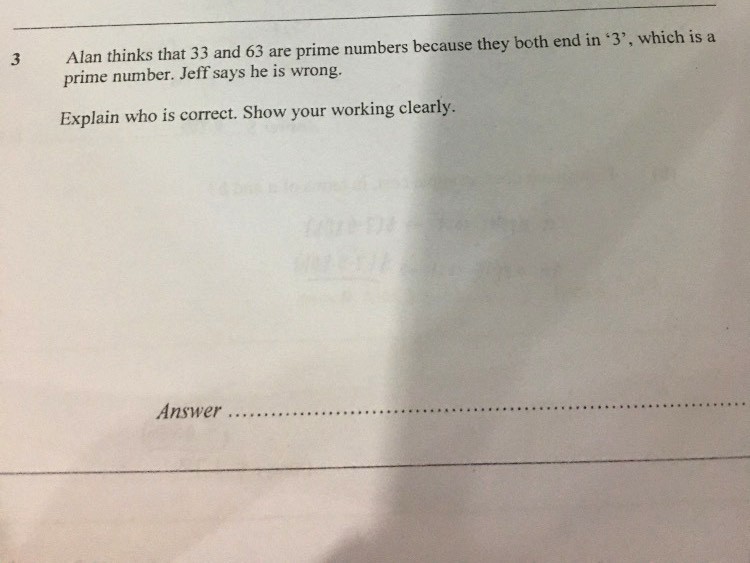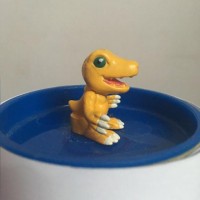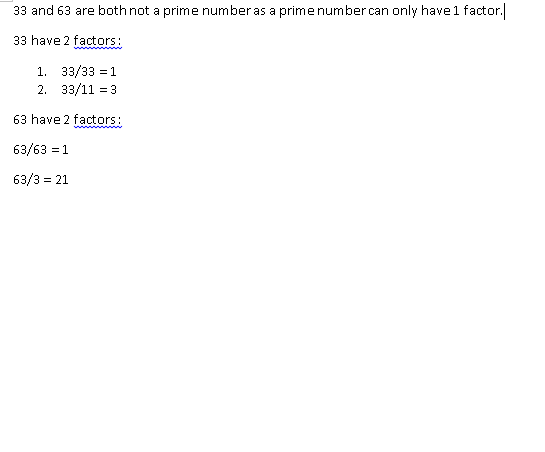Ask Singapore Homework?
Upload a photo of a Singapore homework and someone will email you the solution for free.

Question
secondary 2 | Maths
One Answer Below
Anyone can contribute an answer, even non-tutors.

help
If Alan is correct, then the numbers 12, 22, 32, 42 and so on are prime numbers because they all end in 2. This does not make sense, right?
Let's think. 3 is a prime number. 5 is a prime number. But putting 3 in the tens place and 5 in the ones place, we see that 35 is not a prime number, even though their components 3 and 5 are both prime numbers. This is because we are considering the number as a single unit, rather than separate units.
See 1 Answer
A prime number is a number whose ONLY factors are 1 and itself, where "itself" is an integer more than 1.
We can decompose 63 into 1 x 63, 3 x 21 and 7 x 9 and conclude that 63 has six factors.




